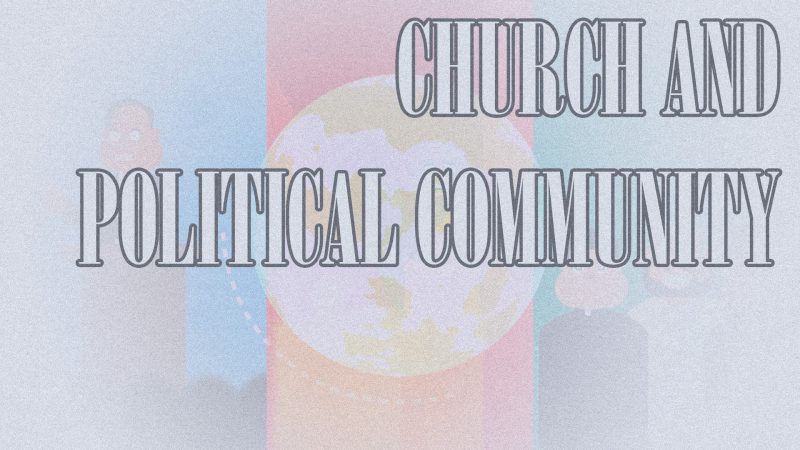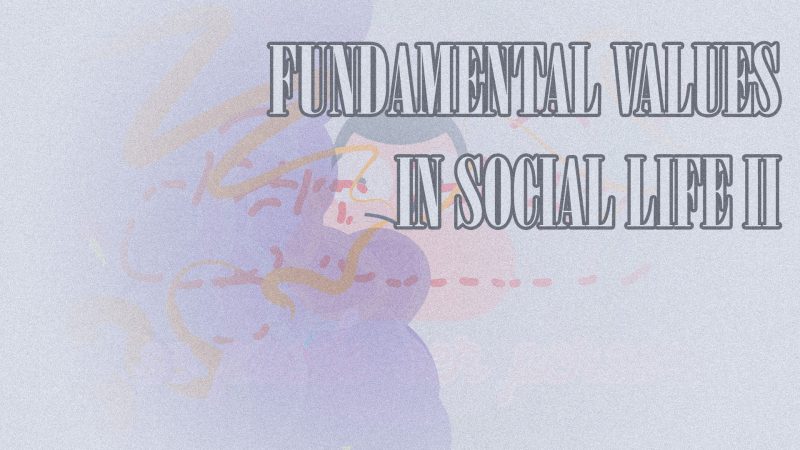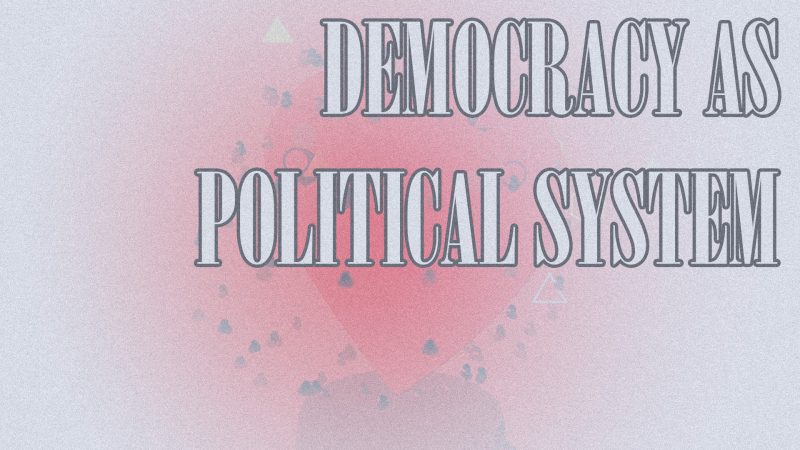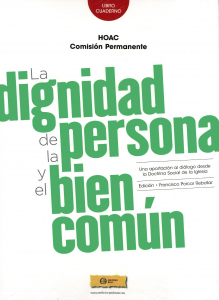People don’t live isolated. We need each other and we are all really responsible for all. That is why it’s something natural to relate with other people and to create institutions to live socially.
Because of that, social life is composed of different institutions of all kind: families, schools, enterprises, towns, parliaments, governments, and so on. We also find several associations: neighborhood, cultural, ecologists, sports and more. All of that is what shapes the social tissue, which needs to be ordered cohesively. That social tissue is called by the social doctrine as the political community.
That political community is a need for people and its goal must always be the searching for the common good. The searching for the common good demands to bring to the foreground the impoverished people needs. In order to work properly, the political community needs a State serving society and a citizenship both active and responsible.
The State has to defend the common good as well as manage the public administration granting the services which society needs. The State has to act as a promoter of people’s fundamental rights, taking special attention to the impoverished people rights.
But the State must not do everything nor it must be a goal itself, it is just an instrument serving the society and the person.
It is because of that we need an active and responsible society. And education is fundamental to achieve that through citizens aware and responsible for political life and also through organizations and institutions of all kind acting in social life.
Without a state serving the society and without a society active and responsible, the society does not work properly.
DSI sentence
A healthy democratic life whose true protagonist is the society, it must have an extense net of associations. (…) A society where associative life of citizens is weak is a society humanly poor and low developed.
CEE, Catholics in public life nn. 72 & 125
Act
¿Qué podemos hacer para que alguna de las organizaciones sociales en las que participamos, o que sea más cercana a nosotros, sirva mejor a la sociedad?
Download the PDF attached
Previous video:
Solidarity and subsidiarity
Next video:
You Might also like
-
Church and political community
Did you ever heard the sentence “The church shouldn’t talk about those subjects”? Let’s see how the Social Doctrine understands the relationship between the Catholic Church and the political community. If we want a real democracy, it must receive and welcome the plurality of worldviews, ideologies and value systems that exist in society.
-
Fundamental values in social life 2
A social life without ethic values is like a flower withering. Social Doctrine considers four values as central and fundamentals for life and political action: Truth, justice, liberty and, carrying all of them, love, the political charity. To live those values leads us to self-fulfillment and to a more human social coexistence.
-
Democracy as political system
The political community, the social tissue, can be organized in different ways. Although the Catholic Church does not identify itself with any of these forms, it considers some of them unacceptable because they don’t respect the person’s dignity. Social Doctrine considers the democracy as the better way to organize political life.




